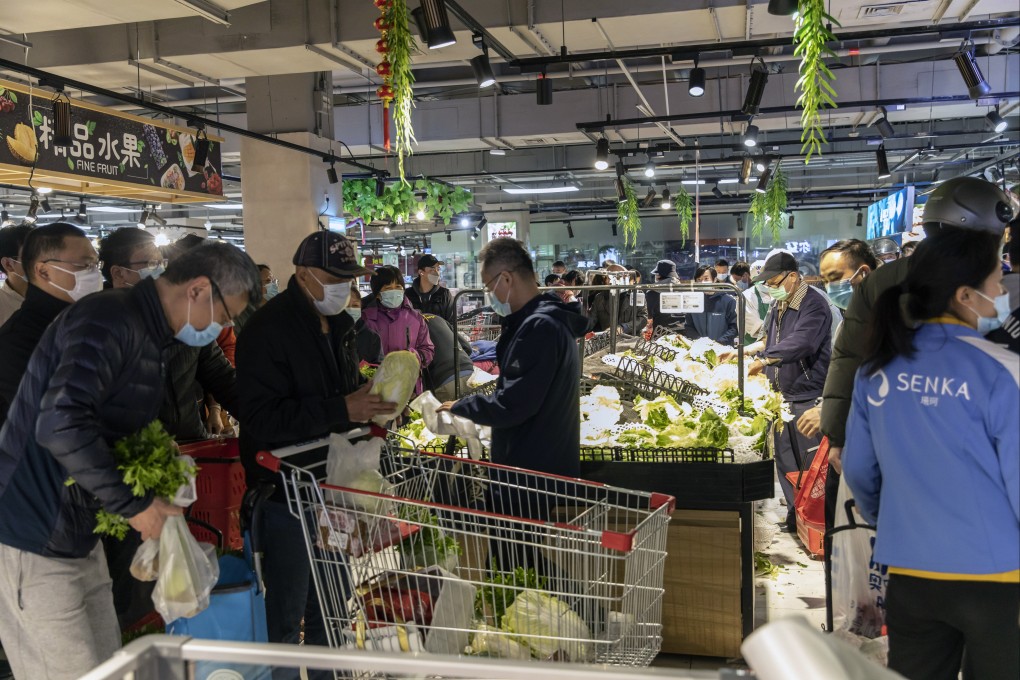Shanghai Covid lockdown: Residents resort to phone calls, group buying to source essentials as food orders, express package deliveries disrupted
- Most e-commerce merchants are not taking orders from Shanghai, with Alibaba’s Tmall informing users that all deliveries to the city have been postponed for seven days
- Shanghai officials denied that all deliveries were suspended, saying that 11,000 food delivery couriers were on duty daily during the lockdown

Cooked food deliveries and express package services in Shanghai are essentially “out of service” as Covid-19 cases in the city of 25 million reached a record high on Wednesday, forcing people to resort to phone calls and group buying to source essentials like groceries and medicine as the city remains in lockdown.
Residents are relying on phone calls and WeChat group buying orders to purchase groceries such as tomatoes, green vegetables and beef, as most local restaurants that previously offered cooked food orders online are shut amid the lockdown.
Most e-commerce merchants are also not accepting orders from Shanghai. The Alibaba Group Holding’s Tmall supermarket app informs users that all deliveries in Shanghai have been postponed for seven days. Alibaba owns the South China Morning Post.
On Tuesday, local authorities in Shanghai’s central Huangpu district published a list of phone numbers for order-takers at e-commerce platforms and pharmacies. In such cases, a community volunteer could set up a WeChat group chat, compile a list of group purchases for grocery supplies, and call the platform contacts to place the order directly – and the e-commerce platforms have their own couriers for delivery.
The Shanghai government has also issued “green passes” for businesses deemed essential to the city’s operation, so merchants with the passes can also help deliver essentials to local communities.
However, Shanghai government officials denied that all food delivery services and express package deliveries had been suspended at its morning press briefing on Wednesday. The city still has around 11,000 food delivery couriers on duty every day, a government official said, without providing details on the situation for express packages.